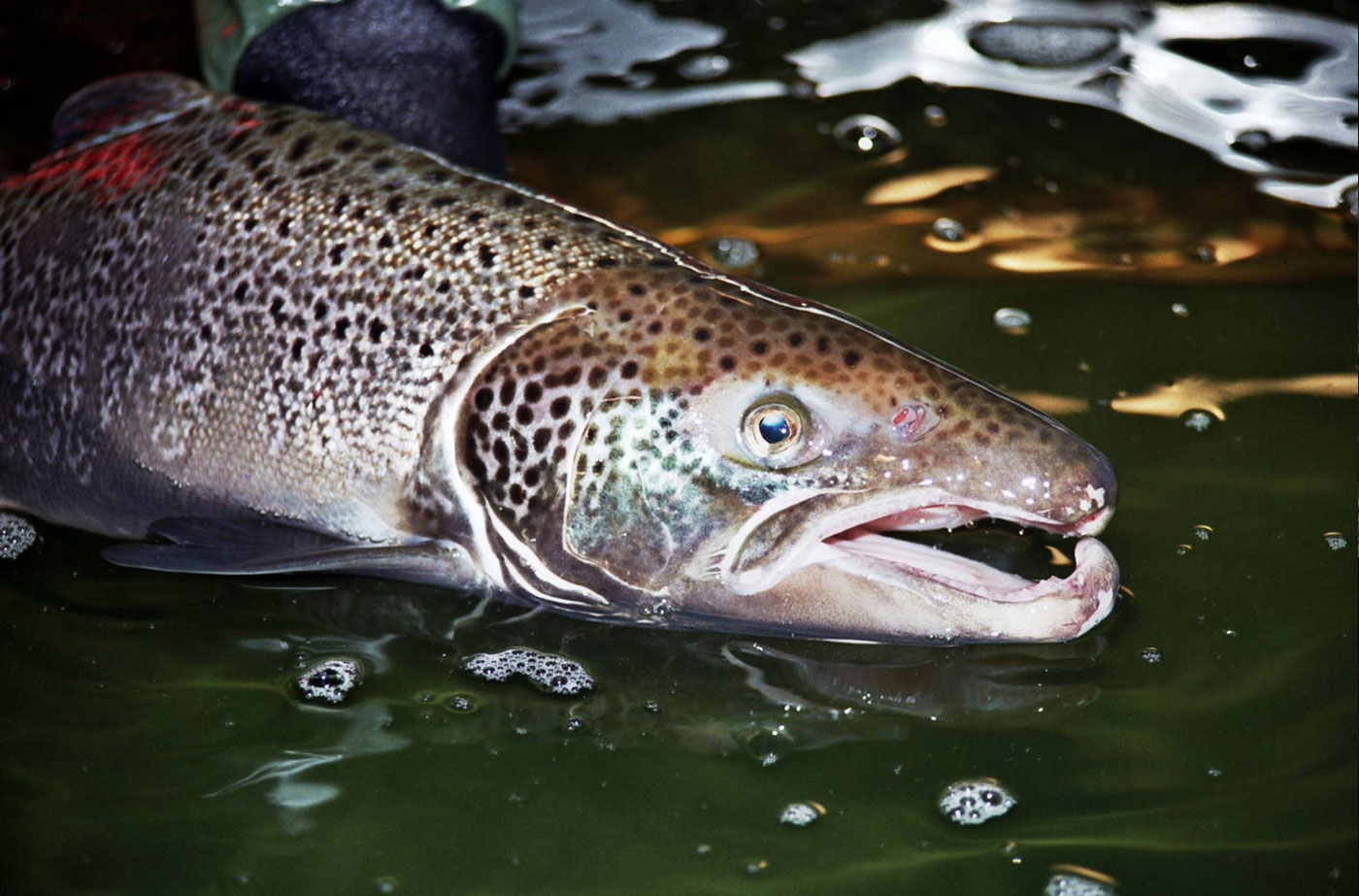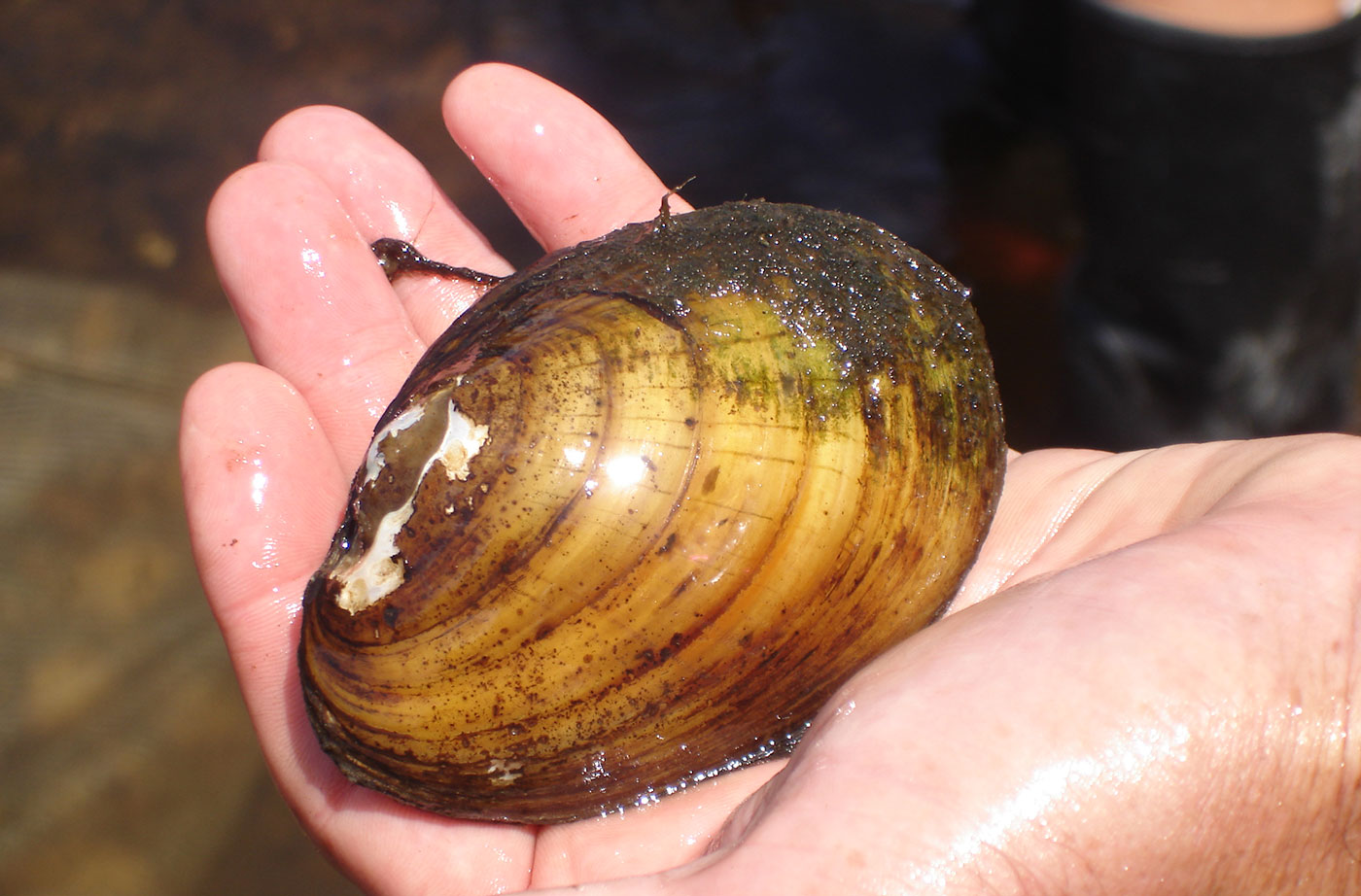The Atlantic salmon is an anadromous fish, which means it spends the majority of its lifetime in the ocean, but returns to spawn in the same freshwater river or stream where it was born. In Maine, salmon begin returning to their home rivers between March and November, with a peak migration during June and July. Unlike their Pacific cousins, Atlantic salmon do not die after spawning, and can return year after year to reproduce.
Conservation Groups Call on LURC to Save Lily Bay
Natural Resources Council of Maine and Maine Audubon Propose Specific Changes to Plum Creek’s Moosehead Plan News release Maine’s two leading environmental organizations said today that the Lily Bay peninsula on the eastern side of Moosehead Lake should be “completely off-limits” to development—even if that means reducing the amount of conservation land on the lake’s Read More
A Way to Save Lily Bay
Remarks by Brownie Carson, NRCM executive director Over the past three years, Maine people by the thousands have participated in a debate about the future of the Moosehead Lake region. Through letters, e-mails, and public testimony to The Land Use Regulation Commission, people from across the state and beyond have explained why Moosehead Lake is Read More
Protect Critical Wildlife Habitat on Lily Bay
Statement by Sheila Kelley Good afternoon. My name is Sheila Kelley and I live year-round in Beaver Cove, on Moosehead Lake. I am here to share my view regarding the importance of protecting critical habitat for the endangered Canada lynx on the Lily Bay Peninsula. I live just 3 miles from Lily Bay State Park, Read More
Creature Feature: Yellow Lampmussel
The empty shells scattered along the shallow edges of the Kennebec, Sebasticook, and Penobscot rivers are not clams, but the remains of freshwater mussels like the yellow lampmussel. The shells may have been left behind by an otter, muskrat, or raccoon after a meal. By serving as food for river mammals, filtering the water for their own food, and linking to fish populations, freshwater mussels play a unique role in river ecosystems.
Plum Creek Deal Hangs on Conservation
by Kevin Miller Bangor Daily News news story AUGUSTA, Maine – Members of Maine’s Land Use Regulation Commission indicated Wednesday that they could stomach an unprecedented amount of development in the Moosehead Lake region as long as it comes with land conservation on an equally historic scale. It wasn’t an official vote, but the commissioners Read More
LURC Deliberations Reveal Taxpayers would Subsidize Conservation for Plum Creek’s Developments
Should taxpayers subsidize Seattle-based Plum Creek’s development so shareholders can profit at the expense of Maine people? Joint statement by Brownie Carson and Kevin Carley Natural Resources Council of Maine and Maine Audubon “While Plum Creek continues its three-year push for Maine’s Land Use Regulation Commission (LURC) to rezone more than 400,000 acres of the Read More
LURC Urges Plum Creek Changes
By Kevin Miller Bangor Daily News news story Staff at the Land Use Regulation Commission are recommending that Plum Creek change the scope of several proposed subdivisions near Moosehead Lake and be required to complete several large conservation deals before any houses go up. But critics of Plum Creek’s plan say they are disappointed that Read More
Maine’s Leading Environmental Organizations Respond to LURC Plum Creek Recommendations
Statement of Kevin Carley, executive director, Maine Audubon and Brownie Carson, executive director, Natural Resources Council of Maine Natural Resources Council of Maine and Maine Audubon “Our organizations respect and appreciate the enormous service of the staff and commissioners of Maine’s Land Use Regulation Commission (LURC) in regard to the unprecedented Plum Creek proposal to Read More










